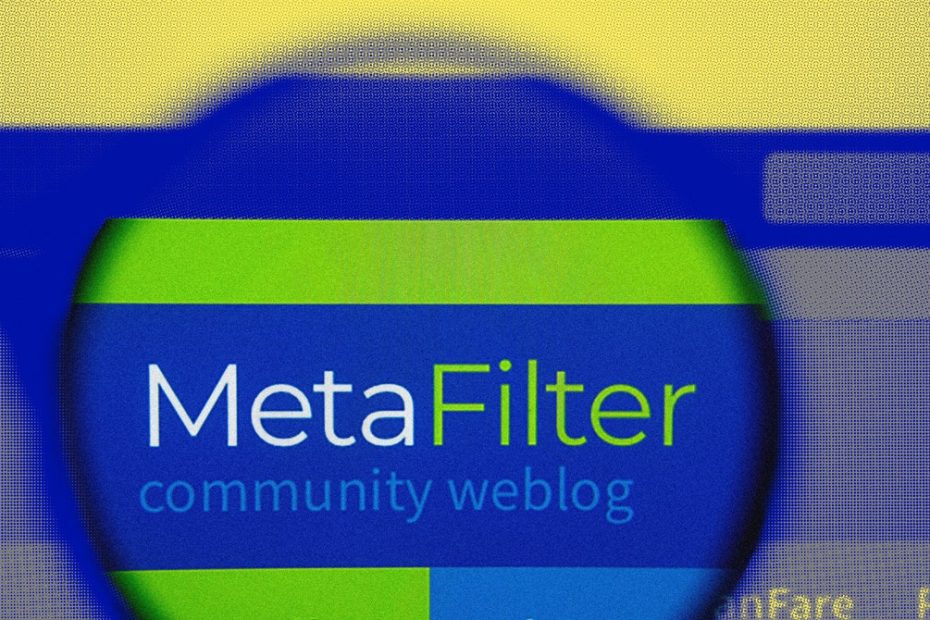Jessamyn West once described Metafilter as a social network for non-friends, a description that’s partly belied by the close-knit camaraderie that develops in an online group of just a few thousand people. West herself is a case in point: she met her partner on the site. She also describes the Metafilter cohort as “a community of old web nerds.”
This month, the venerated site celebrates its 25th anniversary. It’s amazing that it’s survived this long; it’s largely thanks to West, who helped stabilize it after a near-death spiral. You could say it’s the site that time forgot—or at least I forgot about it until I decided to celebrate its big anniversary. Metafilter is a kind of digital Brigadoon; visiting it is a form of time travel. For those who’ve been around a while, Metafilter seems to preserve the spirit of what online used to be like in amber. The feed is strictly chronological. It’s still text-only. Some members may be influential on Metafilter, but they don’t call themselves influencers and they don’t sell their own branded cosmetics or clothing. As founder Matt Haughey, who stepped down in 2017, says, “It’s a strange look back, like a cockroach that survived.”
When Haughey started Metafilter in 1999, he envisioned a quick way for people to share cool stuff they saw on what were then a few dozen major blogs. “I never thought about free-flowing conversations, but it quickly moved toward that,” he says.
For about a year, the community was small, maybe 100 visitors a day, but by 2000 it was featured on a popular blog called Cool Site of the Day, and 5,000 people were viewing it. That helped transform Metafilter from a niche link-sharing site into a community where smart people also discussed what was cool on the Internet. By the early 2000s, Haughey decided that too many people were joining, so he cut off new memberships. (People could still watch the conversation as outsiders.) For years, the only way in was to email him and beg. Later, when he decided to charge $5, 4,000 people signed up on the first day. The fee also helped weed out potential trolls. That, and fairly paid moderators, kept the site civil. More importantly, the community itself didn’t tolerate horrible behavior.
A popular feature from the start was “Ask Metafilter,” where members ask for advice and tips from the Metafilter community. “When you ask a question to 10,000 really smart nerds, chances are someone has experience with the question you’re asking,” Haughey says. It became an invaluable source of knowledge, not just for the community but for those who Googled the answers. Quora later launched with a similar idea, but with ambitions for a mega-footprint. That wasn’t Metafilter’s cup of tea.
“I didn’t want to be a Walmart,” Haughey says. “We’re just the local store.” At one point, he consulted a guy named Aaron Swartz, who had an idea for a site that would be a kind of social media wiki for everything. Then Swartz joined the early Y Combinator gang, and joined a bunch of founders who started a company called Reddit, which was essentially Metafilter with boundless ambition.
Haughey was fine with that. In the early 2010s, things were still pretty comfortable. Metafilter’s core community was tight-knit, and millions of tourists were coming in, attracted by Google’s search results. Haughey made money from Google ads and was able to quit his job as a web designer, buy a house, and start a family. But starting in 2012, Google made a series of spam-fighting changes to its ranking algorithms, and Metafilter suffered collateral damage for mysterious reasons. In the years that followed, revenues plummeted and Metafilter had to lay off a number of employees.

